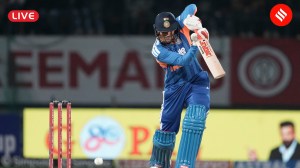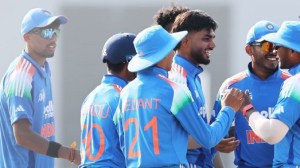The chief of Israel’s spy agency Mossad, David Barnea, last week visited Qatar in what is being seen as an effort to restart Gaza peace talks.
Qatar along with Egypt has been the main mediator in the repeatedly faltering negotiations to end the devastating war in Gaza.

While Egypt is a neighbour of Israel and Palestine, why is Qatar involved?
The answer lies in a recent trend. From backchannel talks with the Taliban to hush-hush negotiations between Washington and Tehran, this small Gulf state is emerging as the world’s go-to middleman, with its deep pockets and strategic ambiguity.
Why is Qatar doing this, and what has helped it position itself as a diplomatic first responder?
Qatar’s path to diplomatic power
It wasn’t always this way. Half a century ago, Qatar was a footnote in British imperial maps. It had neither the religious heft of Saudi Arabia nor the cultural power of Egypt. Even decades after gaining independence in 1971, Qatar remained an inconspicuous state, under a conservative and inward-looking monarchy.
The 1990s changed much. First came the gas boom. The discovery and exploitation of the world’s largest natural gas field, shared with Iran, gave Qatar not just riches, but leverage.
Story continues below this ad
Then came a palace coup in 1995. Sheikh Hamad bin Khalifa al-Thani, the current emir’s father, overthrew his father and set out with a bold vision: to put Qatar on the global stage.
Within a year, he launched Al Jazeera — a channel that broke the mould of state media in the region. Outspoken, pan-Arab, often controversial, it reshaped the political discourse of the Arab world and made Qatar a household name from Morocco to Malaysia.
He opened up the country’s foreign policy, bought up Harrods, Paris Saint-Germain, and Miramax. Qatar secured the rights to host the 2022 World Cup. “The leadership saw diplomacy as a tool of national security and identity-building,” Dr. Rajarshi Chakraborty, an international relations scholar trained at Jawaharlal Nehru University, said. “They knew they couldn’t rely solely on their military or economy to assert influence.”
How Qatar became the relationship broker
Rather than picking sides, Qatar cultivated ties with everyone, from Washington to Hamas, from the Taliban to Israel. It earned Doha praise as a pragmatic neutral in some corners, and suspicion as a double-dealer in others.
Story continues below this ad
In 2008, Qatar helped end an 18-month political crisis in Lebanon. In 2012, it hosted the exiled Syrian opposition. In 2020, it facilitated the US-Taliban peace agreement. Over the past year alone, Qatari diplomats have hosted ceasefire talks for Gaza, brokered prisoner swaps between the US and Venezuela, mediated the return of Ukrainian children from Russia, and even convened leaders of the Democratic Republic of Congo and Rwanda to sign a peace deal in Washington.
Unlike other Gulf monarchies, Qatar has resisted joining full-blown military campaigns, like the Saudi-led war in Yemen, and instead offered to host talks.
This new doctrine was formalised in the country’s 2003 constitution, which stated that Qatar’s foreign policy would be anchored in “strengthening international peace and security.”
Geography helped. Tucked between regional giants Saudi Arabia and Iran, Qatar sits at a volatile fault line. Diplomacy was as much a survival strategy as it was ambition. The 2017 blockade by its Gulf neighbours, who accused it of funding terrorism and getting too close to Iran, only reinforced that instinct. Rather than back down, Qatar doubled down on independent diplomacy, built new alliances, and came out stronger.
Story continues below this ad
Its wealth helped too. With a $450 billion sovereign wealth fund and the world’s third-largest natural gas reserves, Qatar could buy visibility and goodwill. It sponsored global summits, invested in Western capitals, and built world-class infrastructure. Hosting the 2022 FIFA World Cup was only the most visible example of this projection.
But perhaps its greatest asset was discretion. It was willing to mediate quietly, often without fanfare. This low-key style appealed to parties who needed cover to talk.
As of July, the country is running ten simultaneous mediations. And the man orchestrating this is Dr Mohammed bin Abdulaziz al-Khulaifi, Qatar’s Minister of State and chief mediator, a figure rarely in the same timezone two days in a row. “Whenever there is a conflict,” he told a reporter of The Guardian recently, “you will see us.”
Chakraborty said, “Qatar’s mediation game isn’t only about borders or recognition, it’s a deeper quest for meaning. As an Islamic state, it blends faith with diplomacy to carve out a distinct global identity. Faith gives Qatar a language of moral legitimacy. When it talks about peace and negotiation, it’s not just political, it’s civilisational.”
The costs and calculations
Story continues below this ad
Still, neutrality has its price. Chakraborty cautioned, “Qatar’s future as a diplomatic mediator may face growing scrutiny over perceived biases stemming from its US alliance and relationships with controversial groups. Regional rivalries could resurface and undermine its influence.”
Indeed, Qatar’s reliance on US backing, including the large Al Udeid Air Base, has raised eyebrows. While it buys strategic protection, it also ties Doha’s fortunes to Washington’s agenda. In a world shifting toward multipolarity, this could become a liability.
During the recent escalation involving the US, Iran, and Israel, Tehran fired missiles not at Israel or US targets, but at Qatar itself. It marked the first direct military attack on Qatari soil in modern times.
Qatar closed its airspace, readied defences, and intercepted all but one of the 14 missiles, the only one that landed caused no harm. However, it didn’t retaliate. Doha condemned the attack, but recognised it for what it was: Iran’s need for a symbolic win. By absorbing the blow, Qatar gave diplomacy the space it needed.
Story continues below this ad
Within hours, Trump was back on the phone with Doha. Israel had agreed to a ceasefire. The Iran conflagration ended not with a ceremony, but with phone calls brokered by Doha.
“Too much US dependency is working in its favour right now,” Chakraborty said, “but in the long run, China is perceived to be the global power. So it would be prudent for Qatar if their leaders start scouting for new allies in case the USA withdraws its support someday.”
Qatar’s mediating role also risks alienating traditional partners. Its willingness to engage with Hamas, the Taliban, and others has made Israel, Egypt, and parts of Europe wary. Failed negotiations could damage its credibility. The challenge for Qatar will be to adapt without overextending, to remain flexible, but not appear fickle.








































